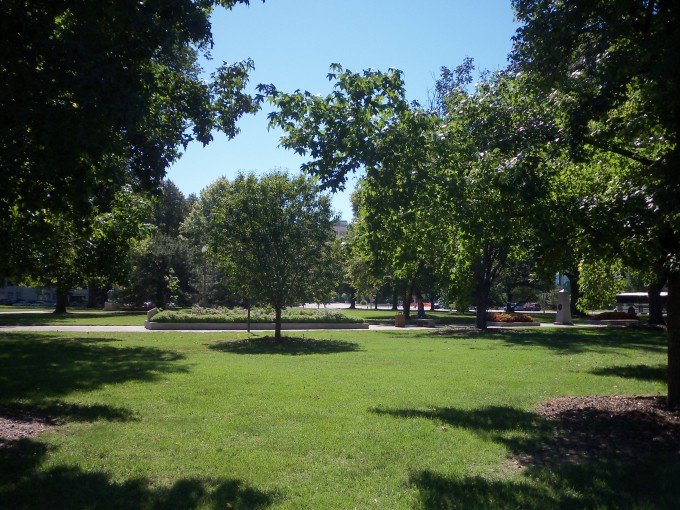
Saturday, 19 December 2015
Who is weak, and I am not weak? Who is made to stumble, and I do not burn with indignation?
2 Corinthians 11:29
From verses 22-27, Paul spoke of those physical things which pertained to him which were in comparison to the false apostles he has been referring to. He was showing the Corinthians that if they could adore the false apostles for their attributes, then he had that much more of all of those attributes to which they could attach their adoration to. This was done, of course, in a manner not intending for them to idolize him, but to show them that they were misdirected in their attitude of elevating man in the way they had.
In verse 28, Paul went from the external to the internal with the words, “besides the other things, what comes upon me daily: my deep concern for all the churches.” His concern for the churches and all of the mental trials were also a part of his efforts for the churches he ministered to. Continuing on now with the inward things with which he struggled, he asks, “Who is weak, and I am not weak?”
This is a verse concerning his empathy for the trials that those in the church face. He was showing them that he was just like them. They had weaknesses and he too faced his own weaknesses. However, he not only faced his own weaknesses, but he also empathized in their weaknesses with them. To understand this, we can first go to 1 Corinthians 8:13 where he says, “Therefore, if food makes my brother stumble, I will never again eat meat, lest I make my brother stumble.”
Paul understood that there were those who were weak in the faith over certain issues. If their weakness demanded that he become like them in order to keep them from stumbling, then he would do so. This is then confirmed in his actions that are noted in 1 Corinthians 9:22 with the words, “…to the weak I became as weak, that I might win the weak. I have become all things to all men, that I might by all means save some.”
Following this, he next asks, “Who is made to stumble, and I do not burn with indignation?” Again, he shows his empathy for their situation as believers still trapped in this weakened body of flesh. There are two general views on how this verse is to be interpreted. One is purely of empathy, and one is of indignation over the offense. In other words, is the word “burn” pertaining to his own internal lusts which he struggles with (empathy with those who face the same), or is the word used concerning his indignation over their weakness?
The word for “burn” is only used one other time in a non-literal sense. In 1 Corinthians 7:9, it says –
“For it is better to marry than to burn with passion.” 1 Corinthians 7:9.
What seems more than probable is that Paul is using it in this same manner when applied to himself. Thus, this is a verse of empathy, not of indignation. First, it is in line with the previous example of being weak, and secondly, it conforms to the next verse which speaks of “the things which concern my infirmity.”
It is unlikely that Paul would show indignation at another’s weakness and then boast in his own frailties. This doesn’t mean that Paul didn’t burn with indignation at his own stumbling, or at the stumbling of others, but that he really faced such things as a human being.
However, it appears that many scholars are afraid to admit that Paul actually burned with passions, as if admitting this would somehow diminish him in his ministry. But… this is exactly what he is trying to do. He is trying to get people’s eyes off of the flesh and onto the strength of Christ which is more powerful than our weakness.
Charles Ellicott is one of the few who is willing to accept that this is the proper way of interpreting this verse. He says –
“Men came to the Apostle with their tales of shame, and told how they had been tempted and had fallen; and here, too, he, in that illimitable sympathy of his, seemed to have travelled with them on the downward road. He felt himself suffused, as it were, with the burning glow of their shame. He blushed with them and for them, as though the sin had been his own.”
Life application: Anyone (even your favorite pastor or preacher) burns inwardly in one way or another. Don’t think that anyone is above this. If you face weaknesses and they claim that they don’t, you might start looking for a new church without such an arrogant soul making claims which are simply not true. If he cannot empathize with you, then he might be prone to lording his supposed superiority over you!
Lord God, help us in our internal struggles of life. Each of us burns with some sort of moral deficiency. We secret these things away in fear that others will find out our true selves, but You know each and every one of our limitations. Help us through them. Strengthen us in our resolve, and grant us the ability to focus our eyes on Jesus whose strength is made perfect in our weaknesses. Thank You for Christ Jesus. Amen.
